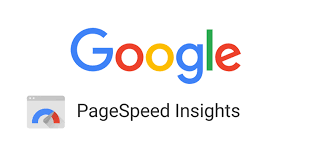7 Tips to Optimize Page Speed in 2023

Seven Tips to Optimize Page Speed in 2023
Introduction
In the ever-competitive world of online marketing, the speed at which your web pages load plays a pivotal role in user satisfaction and search engine rankings. As we step into 2023, optimizing page speed remains a top priority for website owners and SEO professionals alike. To ensure that your website remains fast and responsive, here are seven essential tips to optimize page speed in the year ahead.
-
Compress Images
Images are often the largest elements on a web page, so optimizing them is crucial for improving page speed. Additionally, ensure that you specify image dimensions to prevent layout shifts during loading.
-
Minimize HTTP Requests
Every element on a web page, such as images, stylesheets, and scripts, requires an HTTP request to load. Minimize these requests by combining and minifying CSS and JavaScript files. Reducing the number of requests will significantly improve page load times.
-
Leverage Browser Caching
Leveraging browser caching allows you to store certain resources on a user’s device temporarily. When visitors return to your website, their browser can retrieve these resources locally, reducing the need for repeated downloads. This is particularly effective for elements that don’t change frequently, such as images and stylesheets.
-
Enable GZIP Compression
GZIP compression is a method that reduces the size of HTML, CSS, and JavaScript files before they are sent to the browser. Enabling GZIP compression on your web server can lead to substantial improvements in page load times, especially for text-based content.
-
Implement Lazy Loading
Lazy loading is a technique that defers the loading of non-essential content until it’s needed. Images below the fold or outside the initial viewport are loaded only when the user scrolls to them. This conserves bandwidth and accelerates the loading of critical content.
-
Optimize Server Response
A slow server response time can be a significant bottleneck for page speed. Optimize your server’s performance by utilizing Content Delivery Networks (CDNs), improving server infrastructure, and minimizing database queries. A fast server response time is crucial for an efficient website.
-
Evaluate and Remove Unused Third-Party Scripts
Third-party scripts, such as those for analytics, social sharing, and advertisements, can add significant overhead to your website. Regularly review and evaluate the necessity of these scripts. Remove any that aren’t essential for your website’s functionality, as they can impact both page load times and user privacy.
Conclusion
Optimizing page speed is not only a best practice but also a necessity in the digital age By following these seven tips to optimize page speed in 2023, you can enhance user experiences, reduce bounce rates, and improve your website’s overall performance. Stay vigilant, monitor your site’s performance regularly, and adapt to evolving best practices to ensure that your web pages remain fast and responsive in the ever-competitive online landscape.
For More Related Articles Browse Our Website Blogster.pk
For social Connection You can also Visit and follow our Social media Platforms
Facebook , Instagram, Linkedin, Pinterest, Quora, Twitter, Youtube.





